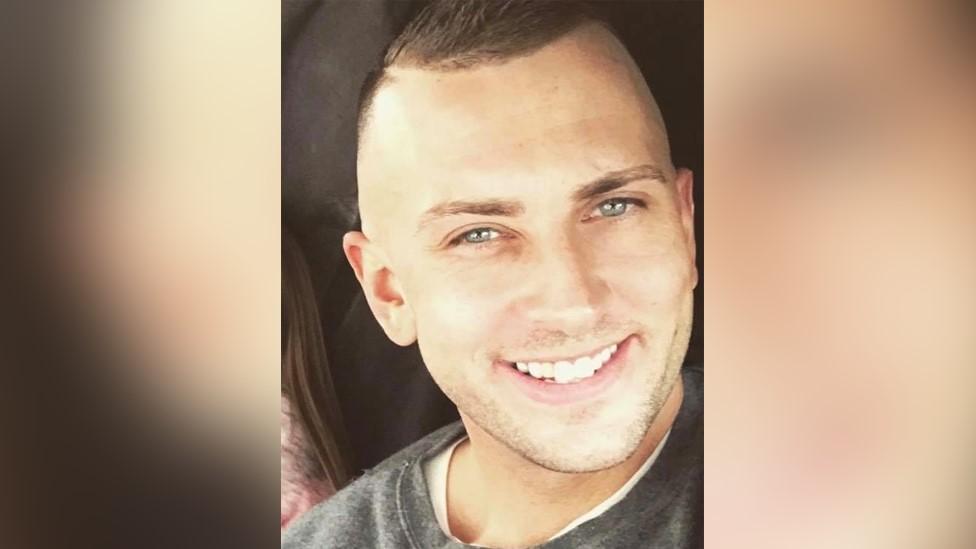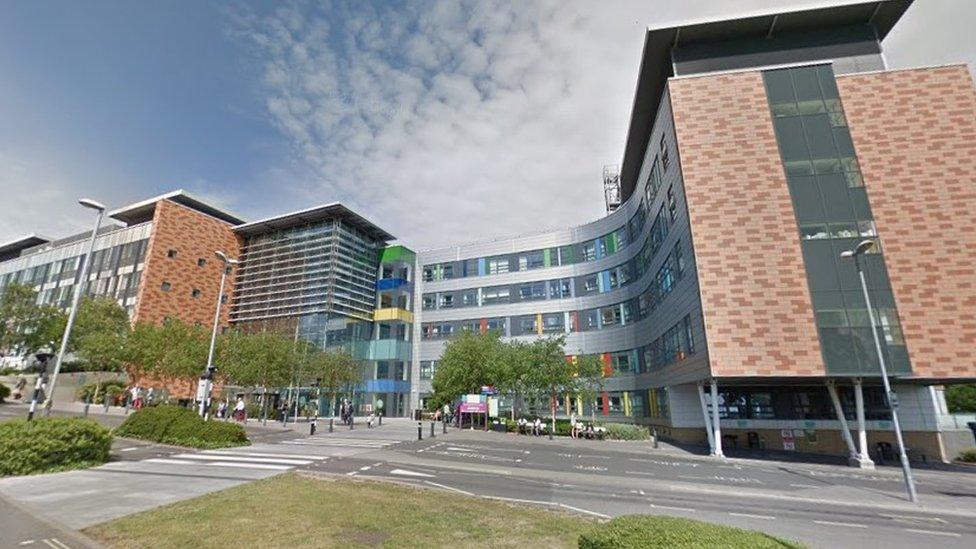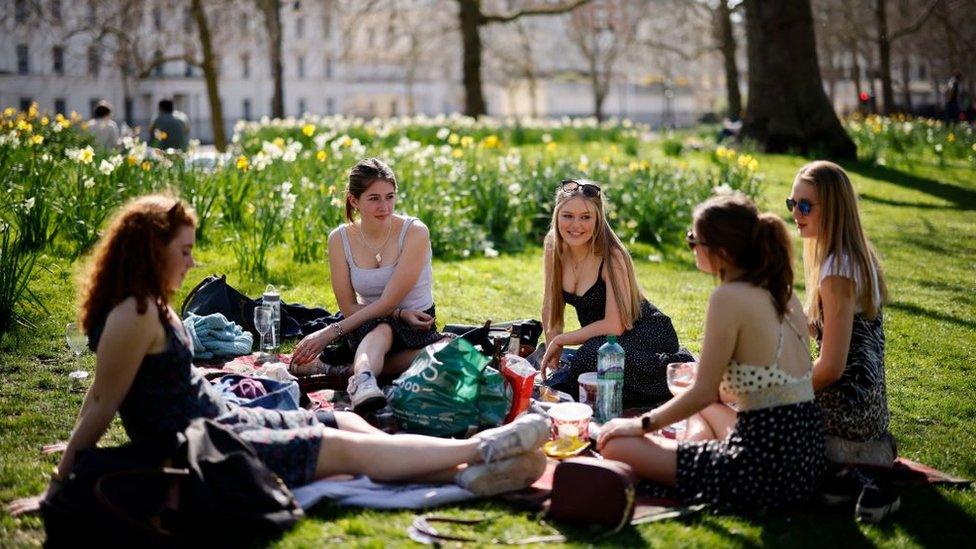Covid: Vaccine clot patient raises funds for NHS charities
- Published

Jamie Roe has raised more than £4,000 to benefit NHS staff
A 28-year-old man who suffered a rare blood clot on the brain after having the Oxford-AstraZeneca vaccine is raising money for NHS charities.
Jamie Roe from Stubbington, Hampshire spent four days in intensive case after suffering a "vaccine-induced" clot.
He has raised more than £4,000 to benefit NHS staff.
Mr Roe set up the appeal to thank staff for the "outstanding care". Despite his experience, he said the benefits of the jab "outweigh the risks"
He was offered his vaccination on 27 March despite being in his 20s because of previous health issues.
He described suffering "awful" headaches eight days later and went to A&E at the Queen Alexandra (QA) Hospital in Portsmouth where scans revealed he had a cerebral venous sinus thrombosis' (CVST) clot on his brain.
He suffered a seizure was taken to the neurological unit at Southampton General.
Since regaining consciousness, he has needed physiotherapy to learn to walk again and has difficulties with his speech.
"What's happened's happened. I'm just trying to get back to a normal life.
"I still think the benefits outweigh the risks of the vaccine," he said.
As well as the online appeal, he is planning a fundraising bike ride between his home and the two hospitals where he was treated.
"Our amazing health service saved my life. My main priority is to raise as much money as possible and make sure all the staff get the recognition they deserve and the equipment they need."
Mr Roe said he hopes to make a full recovery and will be returning to his job in the construction industry shortly.
The QA hospital said it could not comment on individual cases.

Mr Roe is raising money for staff at Southampton General and Portsmouth's Queen Alexandra Hospital where he was first admitted
The Oxford-AstraZeneca vaccine has been linked to distinctive, but rare, blood clots that also appear with low levels of platelets - which help clots form - in the blood.
NHS advice is that the condition is "extremely rare" and that clotting problems are a common complication of Covid-19 infection itself.
The UK's medicines safety regulator, Medicines and Healthcare products Regulatory Agency (MHRA), said there had been 242 clotting cases and 49 deaths, with 28.5 million doses of the vaccine administered.
The government announced last week that most adults under the age of 40 will be offered an alternative to the Oxford-AstraZeneca vaccine due to the link with rare blood clots.
The risk is slightly higher in younger age groups.
The risk of a clot is roughly one in 100,000 for people in their 40s, but rises to one in 60,000 for people in their 30s. Two people in every million in their 40s died and that rises to four per million people in their 30s.
In comparison, immunisation is estimated to have already saved 10,000 lives in the UK.
What happens if I don't get the Covid vaccine? Laura Foster explains
Related topics
- Published7 May 2021

- Published7 April 2021
